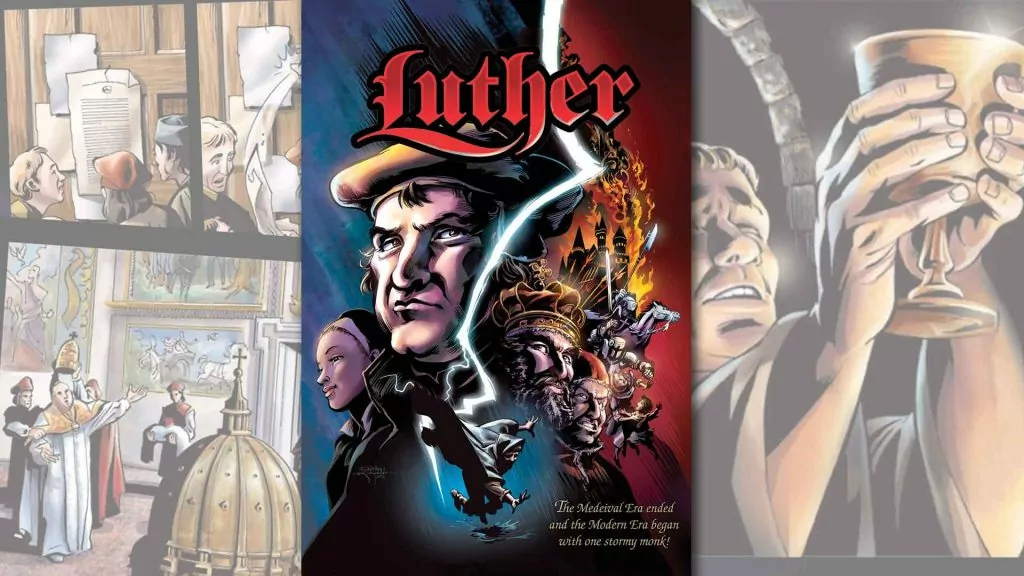The Inspiring True Story of Eric Liddell
by Tim Challies
2025 / 128 pages
Rating: GOOD/Great/Give
Eric Liddell is probably best known as the man who refused to run the 100 meters at the 1924 Olympics because the finals were going to take place on a Sunday. He wanted to obey his LORD, and God’s 4th Commandment:
“Remember the Sabbath day by keeping it holy. Six days you shall labor and do all your work, but the seventh day is a sabbath to the Lord your God. On it you shall not do any work, neither you, nor your son or daughter, nor your male or female servant, nor your animals, nor any foreigner residing in your towns….” (Ex. 20:8-11).
Instead of the 100, Eric competed in two other events that weren’t his specialty, the 200 and 400-meter races. While Hollywood played a little loose with the facts in their 1981 biopic Chariots of Fire, they got the gist right – Liddell went on to win a gold in the 400.
Tim Challies’ comic book biography does better than the film in keeping strictly to the facts. It also includes more of Liddell’s life. He and his brother were often separated from their missionary parents, but they both enjoyed their schooling and many athletic ventures. After his Olympic win, Liddell went on to become a missionary himself in China. When the Japanese invaded China during World War II, Liddell spent his final years as a prisoner in a Japanese internment camp where he encouraged other prisoners by pointing them to the God who was still in control, even in these circumstances. Liddell died in that camp right as the war was nearing an end in 1945.
Cautions
None.
Conclusion
I liked, but didn’t love Eric’s Greatest Race. What I liked was the opportunity to learn a little bit more about the man I’d first encountered in Chariots of Fire. But with only about 30 words a page, this was still quite a brief overview of his life. The black and white artwork is solid, but it isn’t vivid enough to grab a young reader’s attention. I pitched this to my teen daughter, and she echoed my own take: this is a solid base hit, but no home run.
That said, the comic format makes this more accessible to any interested audience than a book-length treatment could ever be. And those 30 words per page mean it is also a quick, easy read. I think Eric’s Greatest Race would make a great addition to any Christian school library; however, there are more exciting options to consider as a gift for your kids or grandkids.












